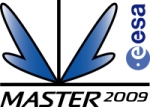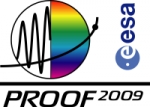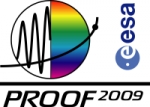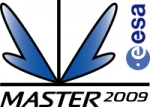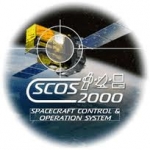Displaying items by tag: software
Astrophysics Source Code Library (ASCL)
The Astrophysics Source Code Library (ASCL) is a free on-line registry for source codes of interest to astronomers and astrophysicists, and lists codes which have been used in research that has appeared in, or been submitted to, peer-reviewed publications. ASCL entries are indexed by the SAO/NASA Astrophysics Data System (ADS).
Much of scientific progress now hinges on the reliability, falsifiability and reproducibility of computer source codes. Astrophysics in particular is a discipline that today leads other sciences in making useful scientific components freely available online, including data, abstracts, preprints, and fully published papers, yet even today many astrophysics source codes remain hidden from public view.
The Astrophysics Source Code Library (ASCL), founded in 1999 by Robert Nemiroff and John Wallin, takes an active approach to sharing astrophysical source code. ASCL's editors seek out both new and old peer-reviewed papers that describe methods or experiments that involve the development or use of source code, and add entries for the found codes to the library. This approach ensures that source codes are added without requiring authors to actively submit them, resulting in a comprehensive listing that covers a significant number of the astrophysics source codes used in peer-reviewed studies.
The ASCL established an advisory committee in 2011 to provide input and guide its development and expansion. ASCL source codes have been used to generate results published in or submitted to a refereed journal and are available for examination via a download site.
The ASCL is indexed by the SAO/NASA Astrophysics Data System (ADS) and Web of Science's Data Citation Index, and is citable by using the unique ascl number assigned to each code. The ascl number can be used to link to the code entry by prefacing the number with ascl.net (i.e., ascl.net/1201.001).
You can follow the ASCL on our blog, our low-volume Facebook page, on Twitter, or by becoming a member of the ASCL forum and subscribing to it.
Rovsing
Rovsing is a supplier of space solutions: fixed-price systems and software solutions for space related disciplines such as on-board, check-out, ground station, earth observation data processing, ground networks, independent software verification and validation, simulation and evaluation application.
By co-locating our experienced engineers at leading space contractors and institutions, we provide on-site engineering support in areas like software development, software validation, systems and software maintenance and exploitation, network solutions, configuration management and quality assurance.
The following summarizes Rovsing’s space activities:
- Satellite Check-Out Systems (EGSE)
- Power and Launch SCOE Products
- On-board and Ground Support Software
- Software Verification and Validation
- Ground Segment Solutions
- Science Reference Facilities
- On-site Engineering Support
MASTER
MASTER (Meteoroid and Space Debris Terrestrial Environment Reference) is a software that can be used to analyze space debris flux and spatial densities. T
he following sources of debris are considered: launch and mission-related objects, explosion and collision fragments, solid rocket motor slag and dust, NaK droplets, surface degradation products, ejecta, and meteoroids. MASTER can deliver flux and spatial density analysis for all epochs between 1957 and 2060. For all epochs, the lower size threshold is one micron. The analysis of the future debris environment is possible based on three different future scenarios (business as usual, intermediate mitigation, full mitigation). The MASTER-2009 software is delivered on a DVD, together with extensive documentation of the underlying models. The software is available for Windows, Linux, Solaris, and MacOS X.
MASTER is developed and maintained by the ESA Space Debris Office.
PROOF
PROOF (Program for Radar and Observation Forecasting) is a software for the simulation of radar- and telescope-based space debris observations.
It is delivered together with the MASTER software. It can be applied for the validation of space debris models like MASTER against observation data. Another use is the planning of debris observation campaigns, including the derivation of neccessary sensor parameters.
PROOF-2009 has been applied in the course of the MASTER-2009 validation process to properly interpret debris observations performed by the ESA Space Debris Telescope, the Liquid Mirror Telescope, the Tracking and Imaging Radar, the Goldstone, and the Haystack Radar. With the new version of PROOF, a simulation of multistatic radar observations, and of phased array radars is now possible.
The software is available for Windows, Linux, Solaris, and MacOS X.
PROOF is developed and maintained by the ESA Space Debris Office.
PROOF
PROOF (Program for Radar and Observation Forecasting) is a software for the simulation of radar- and telescope-based space debris observations.
It is delivered together with the MASTER software. It can be applied for the validation of space debris models like MASTER against observation data. Another use is the planning of debris observation campaigns, including the derivation of neccessary sensor parameters.
PROOF-2009 has been applied in the course of the MASTER-2009 validation process to properly interpret debris observations performed by the ESA Space Debris Telescope, the Liquid Mirror Telescope, the Tracking and Imaging Radar, the Goldstone, and the Haystack Radar. With the new version of PROOF, a simulation of multistatic radar observations, and of phased array radars is now possible.
The software is available for Windows, Linux, Solaris, and MacOS X.
PROOF is developed and maintained by the ESA Space Debris Office.
MASTER
MASTER (Meteoroid and Space Debris Terrestrial Environment Reference) is a software that can be used to analyze space debris flux and spatial densities. T
he following sources of debris are considered: launch and mission-related objects, explosion and collision fragments, solid rocket motor slag and dust, NaK droplets, surface degradation products, ejecta, and meteoroids. MASTER can deliver flux and spatial density analysis for all epochs between 1957 and 2060. For all epochs, the lower size threshold is one micron. The analysis of the future debris environment is possible based on three different future scenarios (business as usual, intermediate mitigation, full mitigation). The MASTER-2009 software is delivered on a DVD, together with extensive documentation of the underlying models. The software is available for Windows, Linux, Solaris, and MacOS X.
MASTER is developed and maintained by the ESA Space Debris Office.
Critical Software
Critical Software is a Portuguese information systems and software company, headquartered in Coimbra (Portugal).
It is a spin-off from the University of Coimbra's business incubator and technology transfer centre Instituto Pedro Nunes (IPN). The company was established in 1998 in Coimbra, Portugal, its headquarters. It has offices in Porto and Lisbon (Portugal) and subsidiaries around the world in Southampton (United Kingdom), San Jose (United States), Bucharest (Romania), São José dos Campos (Brazil), Maputo (Mozambique) and other locations.
Critical Software has participated in Earth observation related projects of the European Space Agency, such as the prevention and mitigation of forest fires, ocean monitoring and research on complex climate systems.
RHEA Group
RHEA is a space engineering consulting and software company that offers knowledge-based services and innovative solutions to the space industry. Rhea technical expertise is coupled with the provision of software tools for both Space and Ground segments.
SCOS-2000 software
The Satellite Control and Operation System 2000 (SCOS-2000) is the generic satellite Mission Control System (MCS) software infrastructure developed and maintained by the European Space Agency (ESA/ESOC) in collaboration with European industry
EPOCH IPS
EPOCH IPS is a COTS software product (Commercially available Off-The-Shelf) intially developed by the company Integral System Inc., which is now Kratos ISI Inc. (after the merger with Kratos in 2011).
EPOCH is a product solution for satellite command and control. It is able to control an array of satellites with minimal personnel. A combination of EPOCH IPS’s open architecture, graphical user interface and automated monitoring and control features allows users to monitor and control both satellite and ground systems. EPOCH IPS’s architecture consists of several servers and user workstations all connected through an Ethernet local access network (LAN). EPOCH Integrated Product Suite contains EPOCH T&C Serverand EPOCH Client, which are Integral Systems' real-time satellite data processing and control software products. EPOCH Integrated Product Suite provides satellite command and control capabilities, including telemetry processing and display, commanding and command verification, ground-station control, alarm or event processing and data archiving. These functions are driven by the EPOCH Database product, allowing the system to support multiple satellites through database updates without modifying the run-time software.



